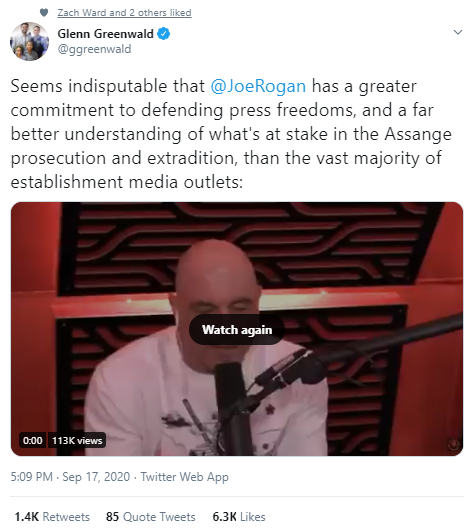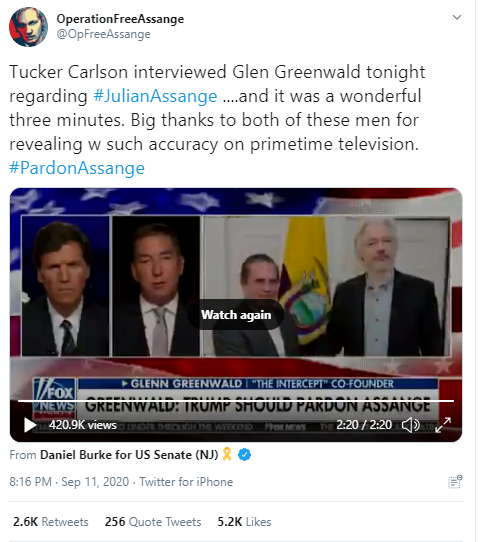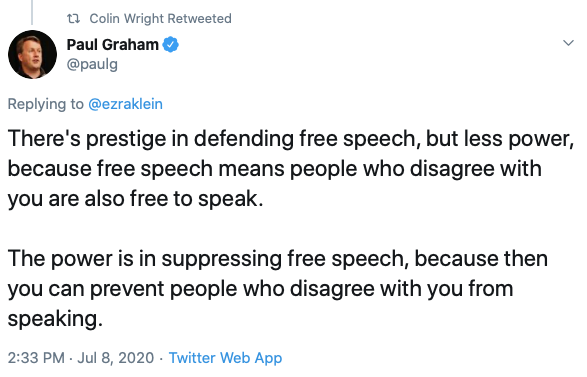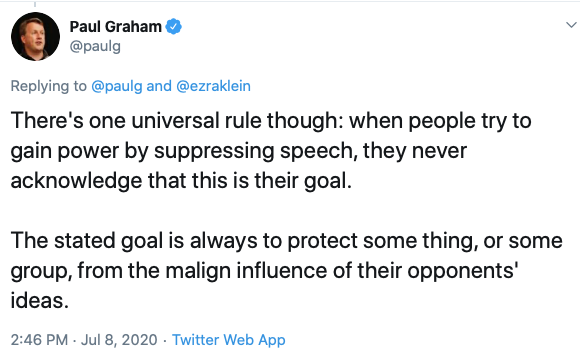Glenn Greenwald Warns of the Domestic War on Terrorism
Here are the opening paragraphs of Glenn Greenwald's latest article, "The New Domestic War on Terror is Coming":
The last two weeks have ushered in a wave of new domestic police powers and rhetoric in the name of fighting “terrorism” that are carbon copies of many of the worst excesses of the first War on Terror that began nearly twenty years ago. This trend shows no sign of receding as we move farther from the January 6 Capitol riot. The opposite is true: it is intensifying.
We have witnessed an orgy of censorship from Silicon Valley monopolies with calls for far more aggressive speech policing, a visibly militarized Washington, D.C. featuring a non-ironically named “Green Zone,” vows from the incoming president and his key allies for a new anti-domestic terrorism bill, and frequent accusations of “sedition,” treason,” and “terrorism” against members of Congress and citizens. This is all driven by a radical expansion of the meaning of “incitement to violence.” It is accompanied by viral-on-social-media pleas that one work with the FBI to turn in one’s fellow citizens (See Something, Say Something!) and demands for a new system of domestic surveillance.
Underlying all of this are immediate insinuations that anyone questioning any of this must, by virtue of these doubts, harbor sympathy for the Terrorists and their neo-Nazi, white supremacist ideology. Liberals have spent so many years now in a tight alliance with neocons and the CIA that they are making the 2002 version of John Ashcroft look like the President of the (old-school) ACLU . . .
An entire book could — and probably should — be written on why all of this is so concerning. For the moment, two points are vital to emphasize.
First, much of the alarmism and fear-mongering is being driven by a deliberate distortion of what it means for speech to “incite violence.” . . .
To illustrate this point, I have often cited the crucial and brilliantly reasoned Supreme Court free speech ruling in Claiborne v. NAACP. In the 1960s and 1970s, the State of Mississippi tried to hold local NAACP leaders liable on the ground that their fiery speeches urging a boycott of white-owned stores “incited” their followers to burn down stores and violently attack patrons who did not honor the protest. The state’s argument was that the NAACP leaders knew that they were metaphorically pouring gasoline on a fire with their inflammatory rhetoric to rile up and angry crowds.
But the Supreme Court rejected that argument, explaining that free speech will die if people are held responsible not for their own violent acts but for those committed by others who heard them speak and were motivated to commit crimes in the name of that cause (emphasis added)
. . .
And that is directly relevant to the second point. Continuing to process Washington debates of this sort primarily through the prism of “Democrat v. Republican” or even “left v. right” is a sure ticket to the destruction of core rights. There are times when powers of repression and censorship are aimed more at the left and times when they are aimed more at the right, but it is neither inherently a left-wing nor a right-wing tactic. It is a ruling class tactic, and it will be deployed against anyone perceived to be a dissident to ruling class interests and orthodoxies no matter where on the ideological spectrum they reside.
The last several months of politician-and-journalist-demanded Silicon Valley censorship has targeted the right, but prior to that and simultaneously it has often targeted those perceived as on the left. The government has frequently declared right-wing domestic groups “terrorists,” while in the 1960s and 1970s it was left-wing groups devoted to anti-war activism which bore that designation. In 2011, British police designated the London version of Occupy Wall Street a “terrorist” group. In the 1980s, the African National Congress was so designated. “Terrorism” is an amorphous term that was created, and will always be used, to outlaw formidable dissent no matter its source or ideology.
If you identify as a conservative and continue to believe that your prime enemies are ordinary leftists, or you identify as a leftist and believe your prime enemies are Republican citizens, you will fall perfectly into the trap set for you. Namely, you will ignore your real enemies, the ones who actually wield power at your expense: ruling class elites, who really do not care about “right v. left” and most definitely do not care about “Republican v. Democrat” — as evidenced by the fact that they fund both parties — but instead care only about one thing: stability, or preservation of the prevailing neoliberal order.
Unlike so many ordinary citizens addicted to trivial partisan warfare, these ruling class elites know who their real enemies are: anyone who steps outside the limits and rules of the game they have crafted and who seeks to disrupt the system that preserves their prerogatives and status. The one who put this best was probably Barack Obama when he was president, when he observed — correctly — that the perceived warfare between establishment Democratic and Republican elites was mostly theater, and on the question of what they actually believe, they’re both “fighting inside the 40 yard line” together
Greenwald then links to this video of Barack Obama.
This point can't be over-emphasized, but I fear that this point is invisible to the tens of millions of Americans who are convinced that U.S. politics can best be understood as a tribal pursuit between the "Left" and the "Right." They are deeply trapped in an illusory matrix that has the viscosity of fundamentalist religion. Greenwald's articles are mostly only for subscribers, but this one is open to the public.




